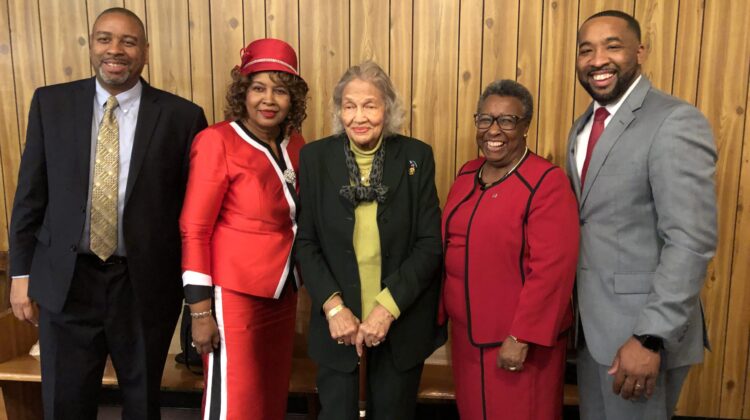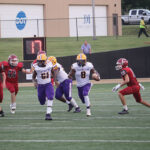

Hattye Yarbrough started the tradition as a new teacher 76 years ago.
“When I came to Covington in 1945 I wanted to hold something for my students,” she said. “I asked my principal, Mr. Brown, if I could teach something for my fourth grade class. It was Negro History Week then, but it became Black History Month.”
As a teacher at Frazier Elementary School and later a librarian at Covington High School after integration, Yarbrough taught students about the contributions made by African-Americans until she retired decades later.
She has also been organizing the Black History Month program at Collins Chapel C.M.E. Church since 1954 – but this year COVID is interrupting the long-standing event.
“This is the first time we’ve ever had to cancel,” she said. “It makes me feel really sad that we have to cancel, but we have to do what we have to do.”
Black history is one of the most important things to Yarbrough, who will turn 100 in August.
She grew up in rural Hardeman County and attended school there through the seventh grade, which she repeated. Her teacher lived with her family and one day her father, Papa Johnny, asked the teacher why he held the entire class back.
“Papa Johnny asked him, ‘Why didn’t Hattye Mae pass? She didn’t bring home a bad card …’ He said it was because he knew these kids weren’t going to go to high school. That was counting us out.”
Her parents sent her to Paris, Tenn. to live with her aunt and uncle and attend Central High School.
It was while she was living with her Aunt Sybil, in her cousin Vernon Jarrett’s room, that the course of her life was decided.
“He had three bookshelves by and about Negro history, it was then, and they also subscribed to two Black newspapers. This was my springboard to becoming interested in Negro history and from that day to this I have been making contributions made by African-Americans known.”
She went on to be a basketball star nicknamed “War Horse” and the salutatorian of her graduating class, graduate from Lane College with honors, earn a library certificate from Fisk University, and earn her masters in library science from Peabody.
Along the way she kept scrapbooks with mementos – like the cards and letters sent from African-American soldiers during World War II which have ended up at the Smithsonian Museum of African-American History – taught as many people about history as she could.
“It’s the unknown history of the contributions of African-Americans that I want people to learn. They give Eli Whitney credit for the cotton gin, but it was actually slaves that built that.”
One of her favorite resources is The Child’s Story of the Negro, written by Jane Shackleford in 1938.
“It was my little orange book and I miss it. Someone took it out of my house.”
Every year the program features guest speakers who have made their own mark on history, from a Tuskegee airman to her cousin, Julian McTizic, who is the first Black mayor of Bolivar.
“I always made a concerted effort to bring a person of fame.”
Though this year’s program is cancelled, and she’s getting on in years, she’s still as focused as ever in her mission to make sure people know about African-Americans have made a difference to the history of this country.
“I want our young people to know African-Americans have made contributions in every segment of American history.”






Leave a Reply